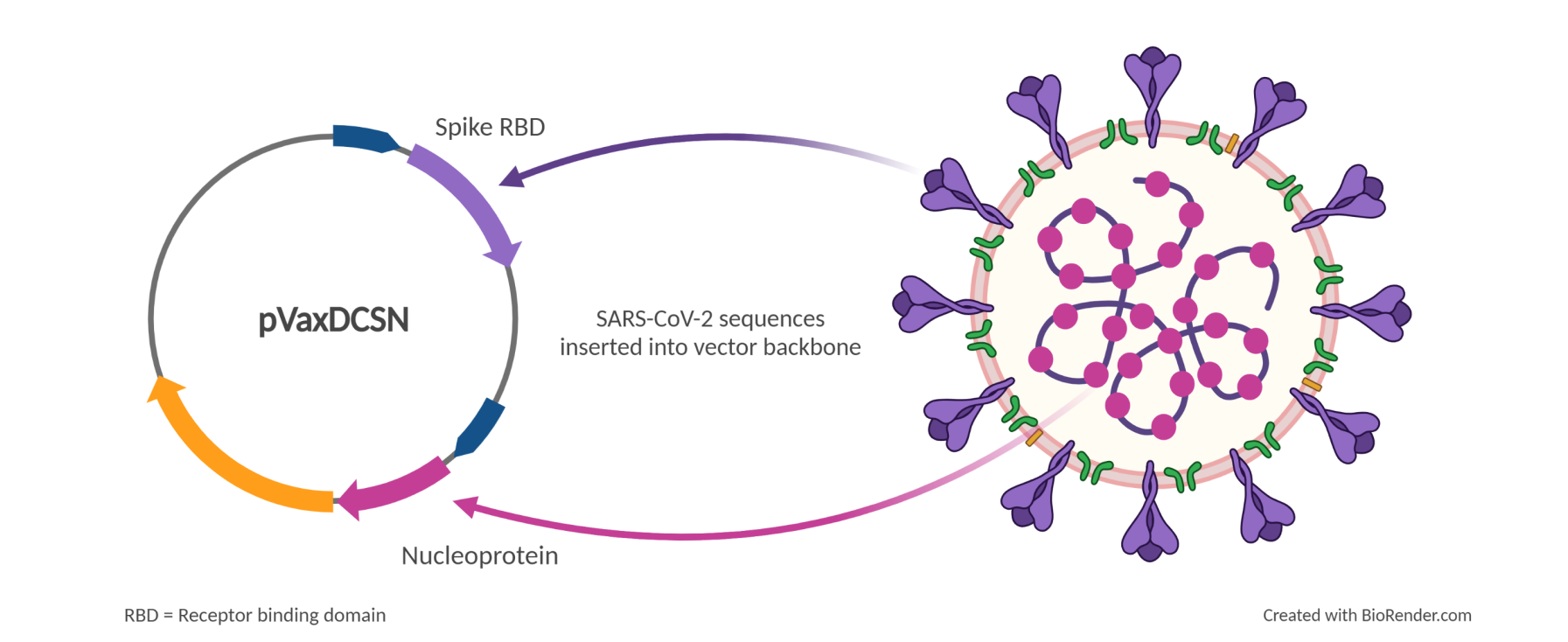Scancell’s unique DNA vaccine approach is to target dendritic cells. The resultant T cell specific responses are both high frequency and high avidity. As COVID-19 research data emerges, it is becoming increasingly clear that the induction of potent and activated T cells may play a critical role in the development of long-term immunity and clearance of virus-infected cells. Scancell has therefore used its proven cancer vaccine concept to design a vaccine against SARS-CoV-2, the virus that causes COVID-19.
Scancell’s DNA vaccine targets the SARS-CoV-2 nucleocapsid (N) protein and the key receptor-binding domain (RBD) of the spike (S) protein to generate both T cell responses and virus neutralising antibodies (VNAbs) against the SARS-CoV-2 virus. The N protein is highly conserved amongst coronaviruses; therefore, this new vaccine has the potential to generate protection not only against SARS-CoV-2, but also against new strains of coronavirus that may arise in the future.

The key design features of Scancell’s SARS-Cov-2 vaccine include:
- Identical plasmid backbone structure to ImmunoBody® SCIB1 already shown to be safe in humans.
- Fusion of the N protein to AvidiMab® modified Fc to target dendritic cells and enhance the N-specific T cell response.
- Inclusion of the trimeric RBD region of the S protein to induce S-specific T cell responses as well as focusing the neutralising antibody response to block virus entry via the ACE2 receptor.
Development of the COVID-19 vaccine is being carried out in collaboration with scientists in the newly established Centre for Research on Global Virus Infections and the new Biodiscovery Institute at the University of Nottingham, and Nottingham Trent University. The goal of the initial work is to assess safety and immune responses in a Phase 1 clinical trial.
The COVIDITY vaccine incorporates two components:
- SCOV1, a plasmid which incorporates SARS-CoV-2 antigens from the original virus strain first identified in Wuhan, China.
- SCOV2, a plasmid which incorporates SARS-CoV-2 antigens from known Variants of Concern (VoCs).
SCOV1 is anticipated to be active against the original SARS-CoV-2 strain and the Alpha variant, and to a slightly lesser extent against the Beta and Gamma variants. SCOV2 is anticipated to boost the effects of SCOV1 while providing further enhanced protection against the Beta and Gamma variants. Antibodies induced by SCOV1 and SCOV2 also show strong binding to the Delta and Omicron variants in preclinical models.
COVIDITY is administered via needle-free injection devices developed by PharmaJet given by either the intradermal (ID) or intramuscular (IM) route, which have been shown to induce both T cell and antibody responses when used to administer plasmid DNA vaccines for other diseases. Needle-free injection is an attractive mode of delivery for a global vaccine.
The first in human (FIH) study is designed to explore the safety, tolerability, and immunogenicity of COVIDITY in healthy adults when administered by needle-free injection. Further information can be found here - A First Time in Human Phase 1 Open-Label Study of the COVIDITY Vaccine Administered by Needle-free Injection